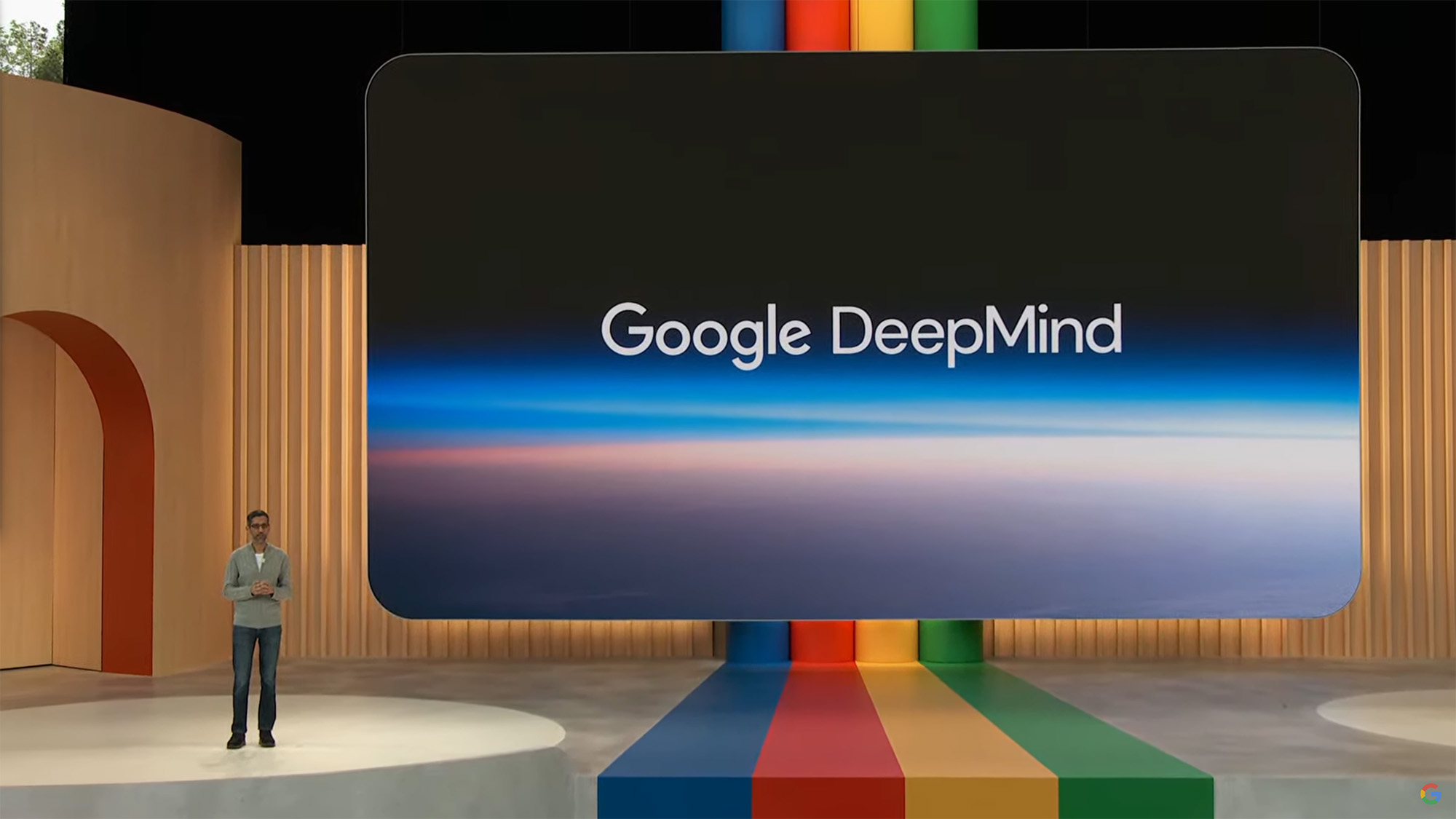Google says its secret AI weapon could eventually outsmart ChatGPT
The goal is to have the AI solve complex problems on its own

Sign up for breaking news, reviews, opinion, top tech deals, and more.
You are now subscribed
Your newsletter sign-up was successful
Google’s DeepMind laboratory is currently developing a new AI system called Gemini with claims it’ll rival, if not surpass, ChatGPT, according to a report from Wired.
In order to surpass ChatGPT, the developers plan on integrating an old “artificial intelligence program called AlphaGo” into the upcoming language learning model (LLM). What’s special about AlphaGo is it's “based on a technique” known as reinforcement learning where the software tackles tough problems through sheer trial and error. As it makes “repeated attempts”, the AI takes feedback it receives from each failure to improve its performance. DeepMind seeks to outfit Google’s future LLM with the ability to plan, or at the very least, solve complex problems.
If you combine that with a generative AI’s ability to grab information from the internet and then reformat it into natural-sounding text, Gemini has the potential to be more intelligent than any other artificial intelligence in the world. At least, that’s the idea. DeepMind co-founder and CEO Demis Hassabis claims that “if done correctly, [Gemini] will be the most beneficial technology for humanity ever”. Bold words.
The AI is deep in development at the moment – “a process that will take a number of months”, according to Hassabis. It will also cost Google a ton of money as the project price tag ranges from tens to hundreds of millions of dollars. For the sake of comparison, ChatGPT cost over $100 million to make.
Analysis: Too good to be true?
Gemini certainly sounds interesting, but at this stage, we’ll remain skeptical. Our chief concern is with AlphaGo itself.
If you don’t know, AlphaGo first came to prominence back in 2016 when it defeated a champion player at the board game Go which is notorious for being incredibly complex and difficult despite its apparent simplicity. The AI was able to win because of the reinforcement learning technique mentioned earlier as it was able to “explore and remember [all] possible moves”.
As interesting as that is, how does AlphaGo being good at a board game also make it good at solving complex problems or generating content? One set of skills for a specific scenario doesn’t mean it'll all translate well into another field. Plus, is it a good idea to have a generative AI trial and error its way to an answer? AI hallucinations are already a problem. AlphaGo can help Gemini improve faster; we just hope the growing pains aren't made public.
Sign up for breaking news, reviews, opinion, top tech deals, and more.
Secondly, Hassabis’ statement of development taking mere months is concerning. When ChatGPT rose to prominence back in early 2023, Google quickly pumped out its own AI-powered chatbot Bard, a move that drew a lot of criticism from employees. Some labeled Bard as “a pathological liar” due to its sheer amount of misinformation. It was even referred to as “worse than useless.” Perhaps it would be a good idea for Google or DeepMind to extend the development cycle from months to years. Train Gemini for a while longer. After all, what’s the rush?
In the meantime, check out TechRadar's recently updated list of the best AI writer for 2023.

Cesar Cadenas has been writing about the tech industry for several years now specializing in consumer electronics, entertainment devices, Windows, and the gaming industry. But he’s also passionate about smartphones, GPUs, and cybersecurity.